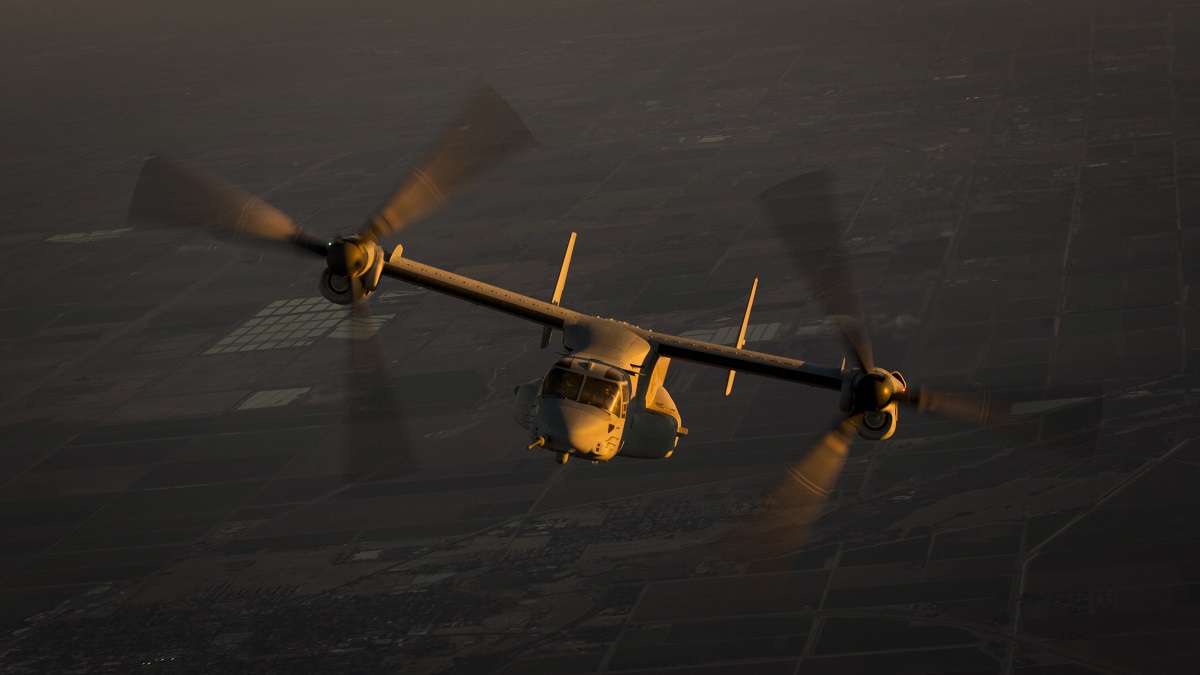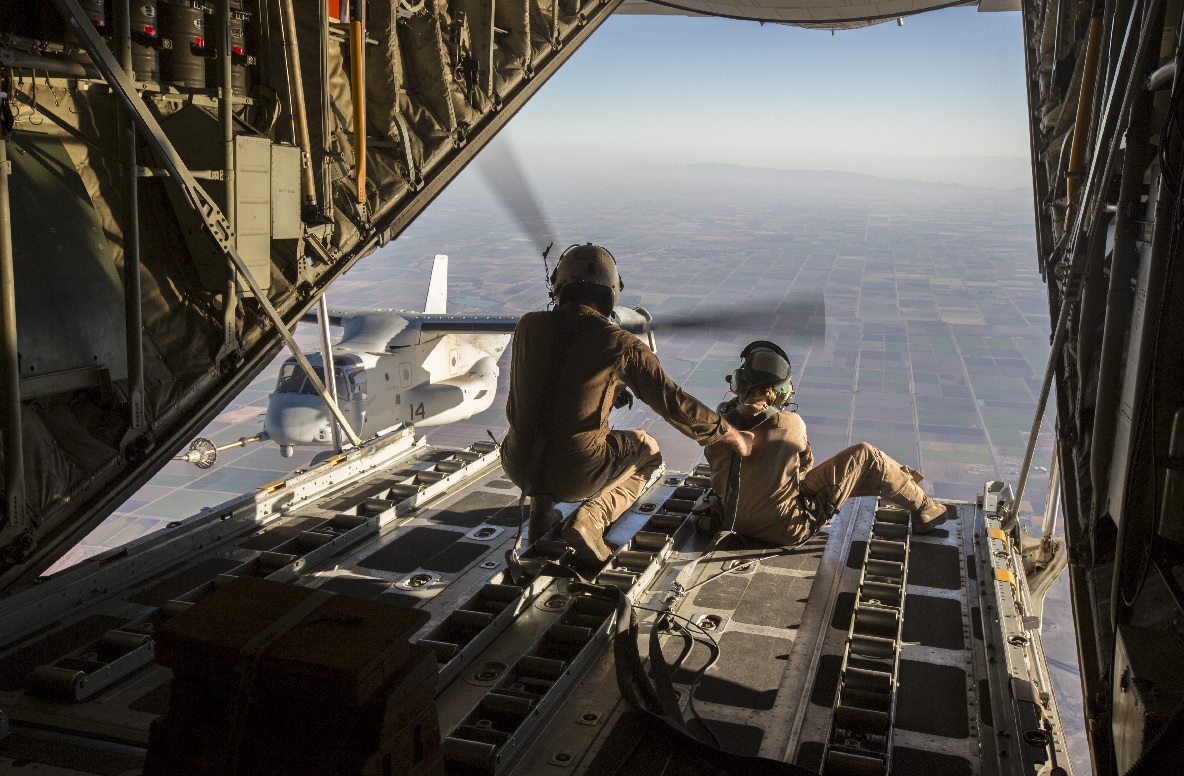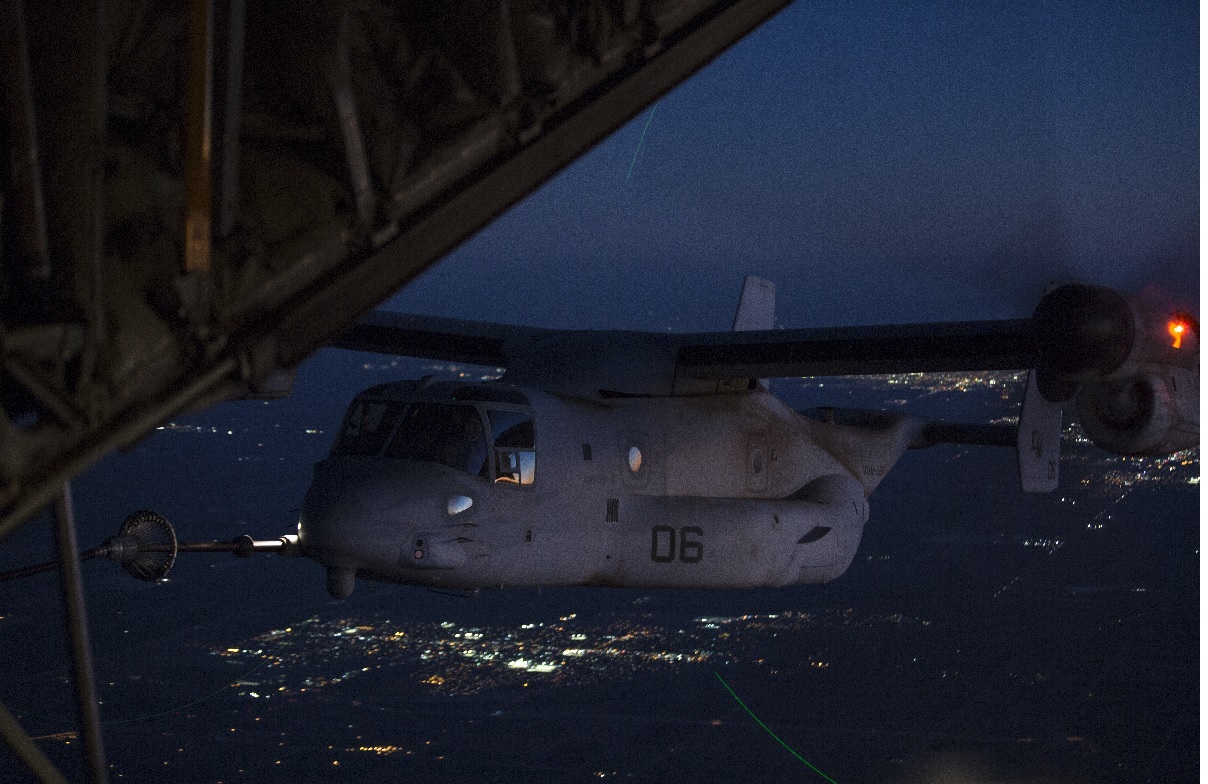After aligning their probes with the KC-130 baskets, the Osprey pilots move their probes into the para drogue using the tilt-rotor, which then slightly increases its speed
A KC-130J Super Hercules of Marine Aerial Refueler Transport Squadron (VMGR) 352 refueled a U.S. Marine Corps (USMC) MV-22B Osprey tilt-rotor aircraft assigned to Marine Aviation Weapons and Tactics Squadron One (MAWTS-1) on October 20, 2016, during a mission to support Weapons and Tactics Instructor course (WTI)1-17 at Yuma, Arizona.
The KC-130 extends hoses that are kept in sizable pods under the plane’s wings during aerial refueling, as seen in the pictures. Para drogue assemblies, sometimes known as “baskets,” are the parts at the ends of the hoses.

Refueling probes are mounted on the front of the Osprey aircraft. The tilt-rotor slightly increases its speed to move the probe into the para drogue once the pilots align their probes with the KC-130 baskets.

The aerial refueling was a part of WTI 1-17, a seven-week training event organized by Marine Aviation Weapons and Tactics Squadron One (MAWTS-1) cadre that places an emphasis on operational integration of the six aviation-related duties performed by the Marine Corps: aerial reconnaissance, offensive air support, anti-aircraft warfare, assault support, control of missiles and aircraft, and electronic warfare.

To support Marine Aviation Training and Readiness, MAWTS-1 offers standardized advanced tactical training, certification of unit instructor qualifications, and assistance in developing and using aviation weapons and tactics.

Photo by Lance Cpl. Danny Gonzalez / U.S. Marine Corps

